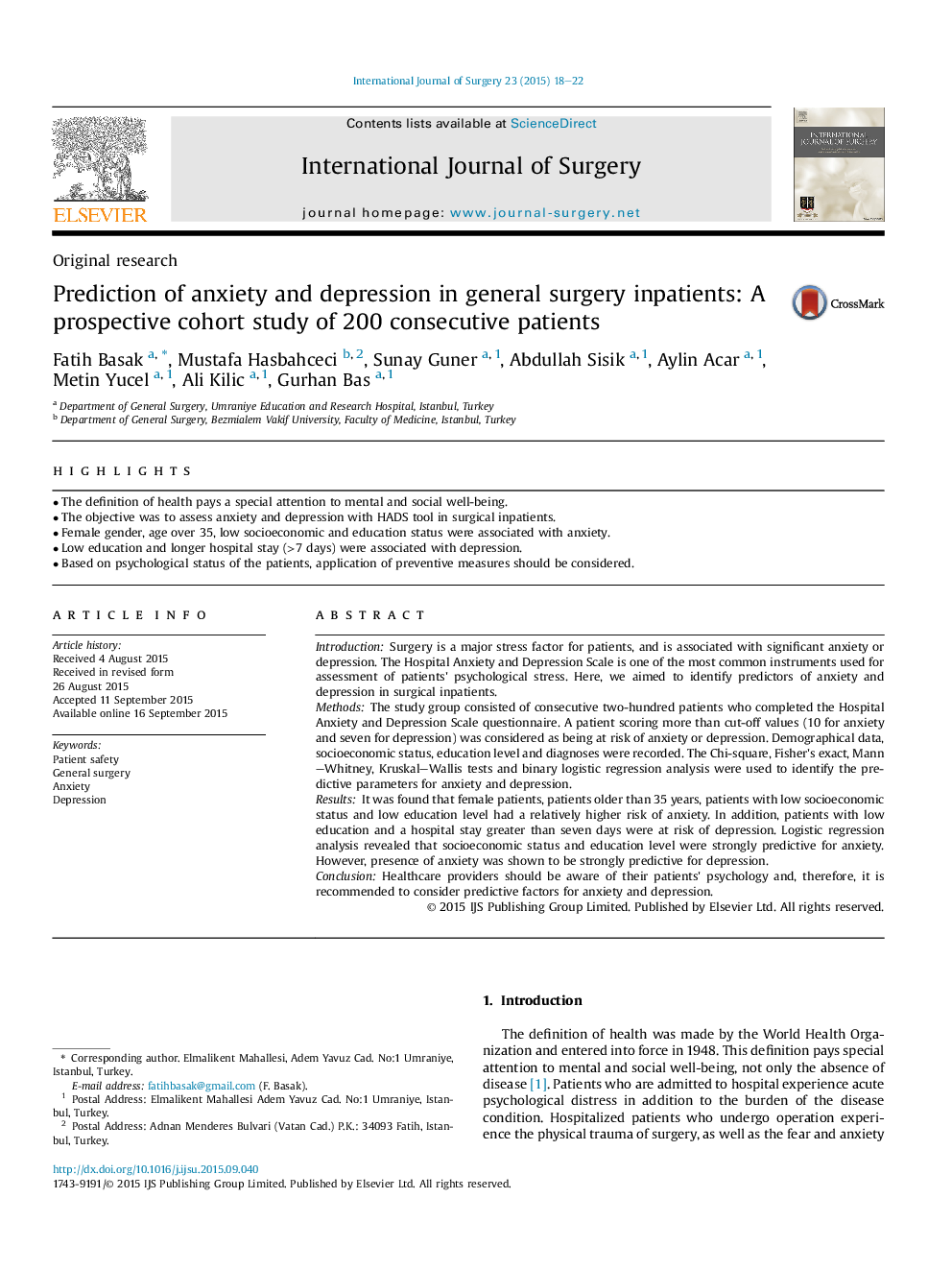| Article ID | Journal | Published Year | Pages | File Type |
|---|---|---|---|---|
| 6251236 | International Journal of Surgery | 2015 | 5 Pages |
â¢The definition of health pays a special attention to mental and social well-being.â¢The objective was to assess anxiety and depression with HADS tool in surgical inpatients.â¢Female gender, age over 35, low socioeconomic and education status were associated with anxiety.â¢Low education and longer hospital stay (>7 days) were associated with depression.â¢Based on psychological status of the patients, application of preventive measures should be considered.
IntroductionSurgery is a major stress factor for patients, and is associated with significant anxiety or depression. The Hospital Anxiety and Depression Scale is one of the most common instruments used for assessment of patients' psychological stress. Here, we aimed to identify predictors of anxiety and depression in surgical inpatients.MethodsThe study group consisted of consecutive two-hundred patients who completed the Hospital Anxiety and Depression Scale questionnaire. A patient scoring more than cut-off values (10 for anxiety and seven for depression) was considered as being at risk of anxiety or depression. Demographical data, socioeconomic status, education level and diagnoses were recorded. The Chi-square, Fisher's exact, Mann-Whitney, Kruskal-Wallis tests and binary logistic regression analysis were used to identify the predictive parameters for anxiety and depression.ResultsIt was found that female patients, patients older than 35 years, patients with low socioeconomic status and low education level had a relatively higher risk of anxiety. In addition, patients with low education and a hospital stay greater than seven days were at risk of depression. Logistic regression analysis revealed that socioeconomic status and education level were strongly predictive for anxiety. However, presence of anxiety was shown to be strongly predictive for depression.ConclusionHealthcare providers should be aware of their patients' psychology and, therefore, it is recommended to consider predictive factors for anxiety and depression.
